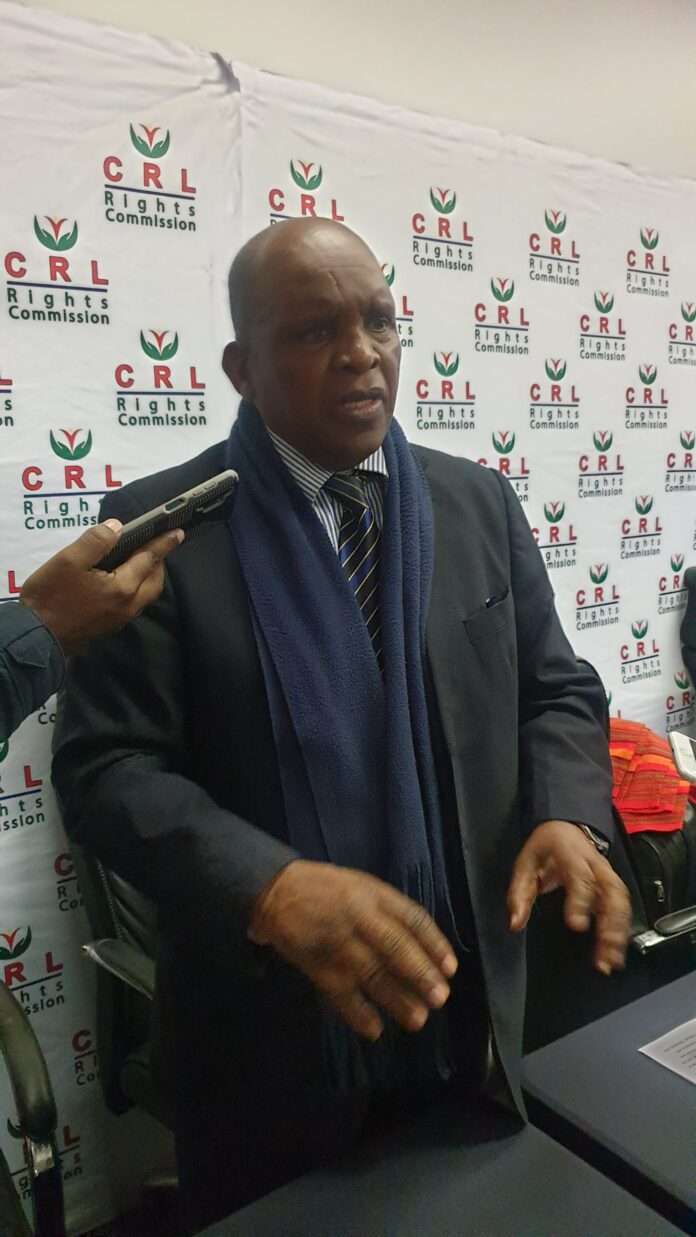The Cultural, Religious and Linguistic (CRL) Rights Commission has referred all criminal accusations – including that of rape, sexual harassment, fraud, assault and money-laundering – against the KwaZulu-Natal church KwaSizabantu Mission to the police.
The commission on Thursday released its report on KwaSizabantu Mission investigation which looked into allegations of violations of religious rights, fraud, rape, sexual harassment, money-laundering, virginity testing and denying families access to graves located in the church’s property.
Another allegation levelled against the church was that of deceiving a church member to bequeath on his assets to the church.
All employment and labour complaints were referred to the Department of Labour and the Commission for Conciliation, Mediation and Arbitration.
The report, which concludes a three-year long process that included interviews and hearing meetings at different locations, including the mission’s farm situated between Greytown and KwaDuduza, was released by CRL Rights Commission chair professor David Mosoma in Braamfontein.
KwaSizabantu Mission was founded and led by Reverend Erlo Stegen.
In addition to several portfolios including a primary and high school, as well as a teacher education and training centre; the mission produces and bottles the popular aQuelle spring water range.
It also provides fresh produce to big chain stores and supermarkets such as Woolworths.
As part of the investigation, present and former church members were also interviewed or were part of the hearings that took place from October 2020 to September 2022.
In its report, the CRL Rights Commission notes that “most of the complainants that came forward made allegations of sexual harassment by [church] counsellors; rape within the mission, sodomisation and touching of children in an inappropriate manner.
“Such rapes, according to some of the complainants, would take place at the mission and in the sugarcanes.
“There is one perpetrator, according to the complainants, who has allegedly raped several ladies in the mission, including the daughter of one of the complainants who came forward to the [CRL Rights] commission.
“This complainant stated that these criminal acts were reported to the head of the mission, but he did nothing about them, some he would dismiss them whenever they reported to him,” reads the report.
Speaking to the media at release of the report, Mosoma said as part of its findings, all allegations related to employment matters; criminal actions including fraud, assault, money-laundering and rape, and matters related to the administration of estates were referred to relevant authorities for investigation as they were outside of the CRL Rights Commission’s mandate.
“These fall outside the commission’s mandate,” he said, adding that the commission will be monitoring the progress of the cases and urging complainants to play their part in participating in the legal processes to bring those guilty to book.
He said the commission has found that KwaSizabantu does not have programmes that educate pupils and students about sexual harassment and molestation.
“We recommend that the mission work together with the Department of Social Development to develop and implement programmes on child protection matters, including awareness on child abuse, neglect and exploitation as soon as possible to mitigate the abuse of children,” he said.
Mosoma, who was flanked by his deputy Dr Sylvia Pheto and three commissioners who were part of the investigation – Sheilla Mbele Khama, advocate Richard Botha and Sicelo Dlamini – said virginity inspection as a cultural practice may be performed at the mission only for those who volunteer to participate in the practice.
The commission has also recommended that KwaSizabantu Mission apologise to the complainants and former members for the hurt which they could have caused as a result of the practices of the mission.
“Reconciliation between the mission and the former members who have been hurt or wronged by the practices of the mission must be facilitated to the purpose of peace and unity,” he said, adding that the commission is willing and open to facilitate such a reconciliatory process.
“We are not a legal institution. Our mandate is to promote and protect the rights [of cultural, religious and linguistic communities] … the creation of peace, unity, tolerance and humanity in communities. It assumes that the organs of state would take care of the justice part.
“In terms of cooperative government when we discover an issue which is not within our mandate, we refer it to the relevant authority and monitor what happens.”
He said the report seeks to pave a way of building a new institution, which was docked by complaints of the past.
Follow @SundayWorldZA on Twitter and @sundayworldza on Instagram, or like our Facebook Page, Sunday World, by clicking here for the latest breaking news in South Africa.



